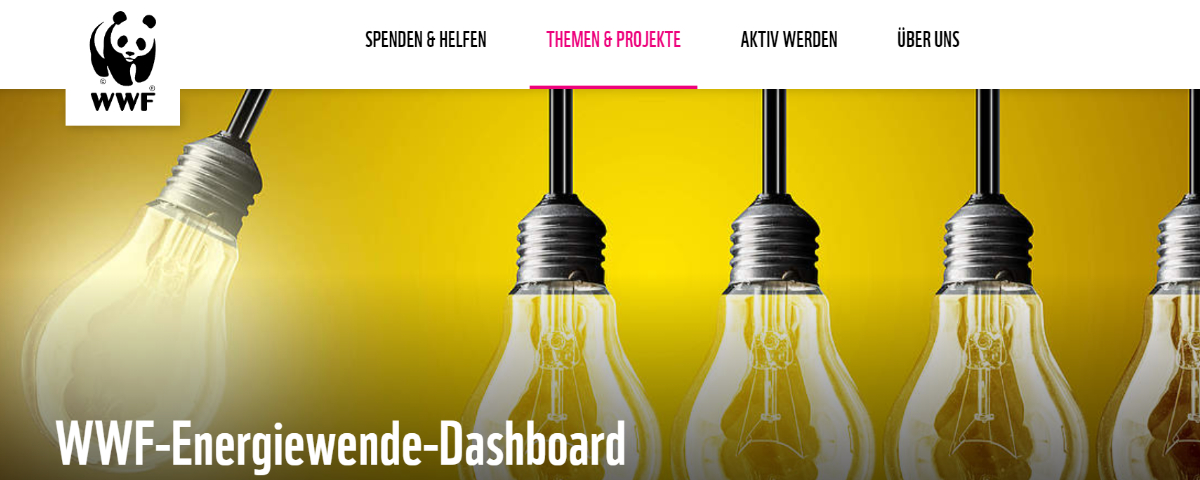
Energy transition dashboard for WWF Germany
11. March 2022
Excellent: Kathrin Goldammer one of 15 remarkable women in mobility worldwide
21. March 2022Understanding energy transition – Dashboard developed and published for WWF Germany

March 18, 2022 | Influence of CO2 emissions on the climate, development of droughts in Germany or the share of renewable energies in the electricity mix – the Reiner Lemoine Institute (RLI) has developed the new energy transition dashboard together with local energy consulting (l°energy) on behalf of WWF Germany. With ten interactive fields, the digital tool shows important data and facts about the energy transition and makes contexts clearer.
“For the energy transition to succeed, people need to understand the contexts and effects of energy supply, CO2 emissions and global warming. With the new dashboard, we make this visible for WWF. We succeed in preparing and presenting the complex information by using open source technology and an optimized design,” says Mascha Richter, Unit Head Transformation of Energy Systems at RLI.
Important data for the implementation of the energy transition
Energy transition is an integral part of the fight against climate change and the protection of nature and people. The new dashboard is intended to help by providing an interactive and playful access to relevant energy and climate facts. Users will find data on topics such as electrification, energy systems, climate developments, CO2 emissions and mobility. The dashboard helps people who are looking for comprehensible information on the energy transition and climate protection and who are interested in WWF topics. The content can be shared or embadded via social media.
Technical basis and data
The dashboard was developed jointly by the RLI and l°energy. l°energy was responsible in particular for the content and data research, and the RLI for design and technical implementation. The tool is implemented as a flask application in python. This supports the easy creation of interactive dashboards. The graphics library D3 is used for the visualizations. The instrument is developed according to the mobile first approach in responsive design and optimized for mobile devices.




